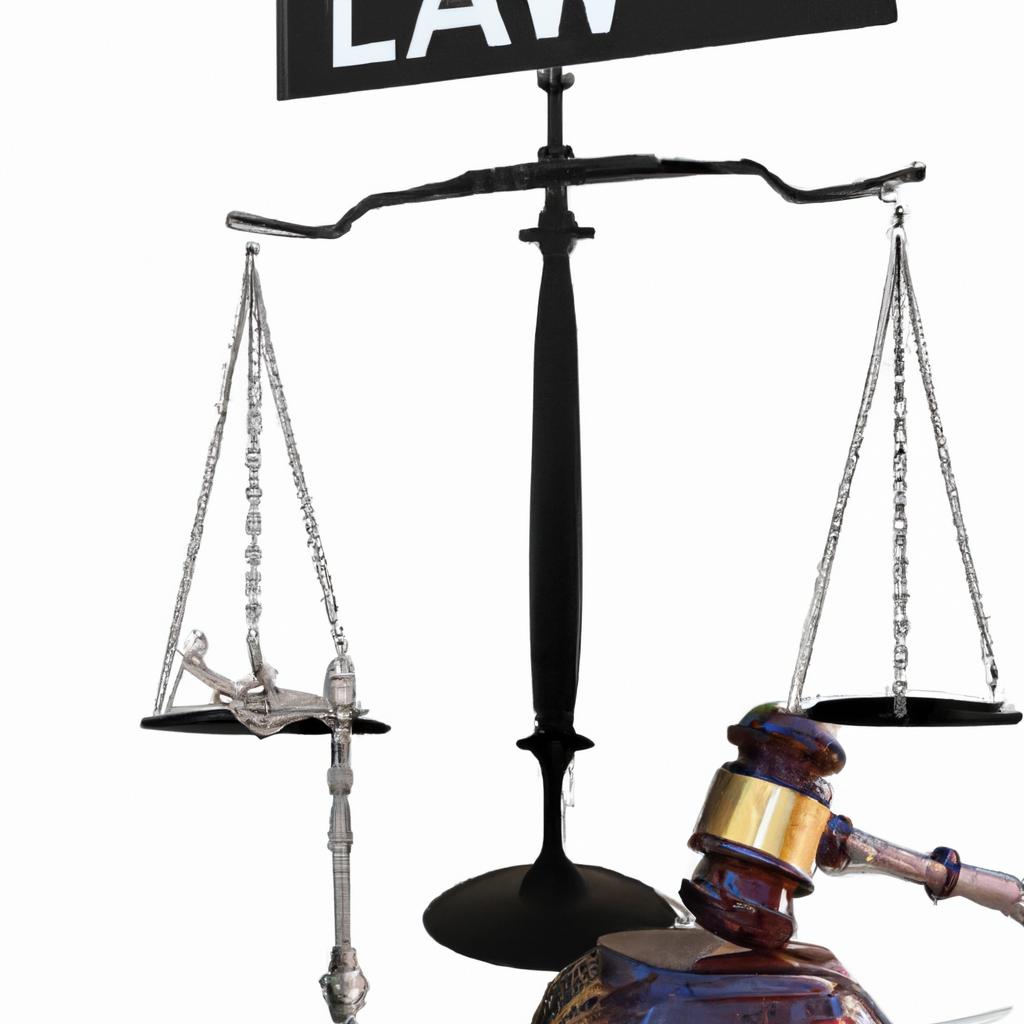When navigating the complex world of estate planning and probate, one particularly important document to understand is the quitclaim deed after death. This legal instrument, often shrouded in mystery for many, plays a crucial role in transferring property ownership after the passing of a loved one. At Morgan Legal Group in New York City, our team of experienced lawyers specializes in estate planning, probate, elder law, Wills, and trusts, and we are here to guide you through the intricacies of the quitclaim deed after death with clarity and expertise.
Understanding the Basics of Quitclaim Deeds in Estate Planning
is crucial for ensuring smooth property transfers after a loved one’s passing. A quitclaim deed, often used in estate planning, allows for the transfer of property ownership without any warranties or guarantees. This means that the grantor makes no promises about the property’s title history, potential liens, or other encumbrances.
One important aspect to note about quitclaim deeds in estate planning is that they do not provide the same level of protection as warranty deeds. It is essential to consult with an experienced estate planning attorney to determine whether a quitclaim deed is the right option for your estate planning needs. At Morgan Legal Group in New York City, our team of skilled estate planning attorneys can help guide you through the process of utilizing quitclaim deeds effectively in your estate plan.

Navigating the Process of Using a Quitclaim Deed After Death
When it comes to using a quitclaim deed after death, it is essential to understand the process and steps involved to ensure a smooth transfer of property ownership. Here at Morgan Legal Group in New York City, our team of experienced estate planning lawyers can guide you through the complexities of using a quitclaim deed in probate.
<p>One important aspect to consider is the legal requirements of using a quitclaim deed after death. It is crucial to follow these steps meticulously to avoid any complications or disputes in the future. Our lawyers can help you navigate through the process, from drafting the deed to filing it with the appropriate authorities.</p>
Potential Challenges and Considerations with Quitclaim Deeds Postmortem
When dealing with quitclaim deeds postmortem, there are several potential challenges and considerations that should be taken into account. One major issue is the validity of the deed itself. Since the grantor is deceased, there may be questions regarding the authenticity of the deed and whether it was executed properly. This can lead to disputes among heirs and beneficiaries, resulting in costly legal battles.
Another important consideration is the impact of the quitclaim deed on the deceased’s estate. Depending on the circumstances, the deed may have unintended consequences, such as disinheriting heirs or affecting the distribution of assets. It is essential to carefully review the deed and consult with a legal professional to ensure that it aligns with the decedent’s overall estate plan.

Expert Recommendations for Utilizing Quitclaim Deeds in Estate Administration
Quitclaim Deed After Death
When it comes to estate administration, utilizing quitclaim deeds can be a valuable tool in ensuring property is transferred efficiently and effectively. include:
- Consider the specific circumstances: Before deciding to use a quitclaim deed, it is important to carefully consider the specific circumstances of the estate and the property involved.
- Consult with legal professionals: Working with experienced estate planning attorneys can help ensure the proper drafting and execution of quitclaim deeds to avoid potential challenges in the future.
- Verify property ownership: Before using a quitclaim deed, it is crucial to verify the current ownership of the property and ensure all necessary parties are involved in the transfer process.
| Property Owner | Property Address | Transfer Status |
|---|---|---|
| John Smith | 123 Main St. | Completed |
| Jane Doe | 456 Elm St. | Pending |
Q&A
Q: What is a quitclaim deed?
A: A quitclaim deed is a legal document used to transfer ownership of a property from one party to another.
Q: Can a quitclaim deed be used after someone has passed away?
A: Yes, a quitclaim deed can be used after someone has passed away to transfer ownership of a property to another party.
Q: What is a quitclaim deed after death?
A: A quitclaim deed after death is a legal document that transfers ownership of a property from the deceased individual’s estate to a living beneficiary.
Q: Is a quitclaim deed after death a common practice?
A: Yes, using a quitclaim deed after death is a common practice for transferring ownership of a property to a beneficiary without going through the probate process.
Q: Are there any potential complications with using a quitclaim deed after death?
A: While using a quitclaim deed after death can be a quick and simple way to transfer ownership of a property, there may be potential complications if there are multiple beneficiaries or disputes over the property.
Q: How can someone ensure that a quitclaim deed after death is legally valid?
A: To ensure that a quitclaim deed after death is legally valid, it is recommended to consult with a real estate attorney to oversee the transfer of ownership and ensure that all legal requirements are met.
Insights and Conclusions
In conclusion, understanding the implications of a quitclaim deed after death is crucial for ensuring a smooth transfer of property ownership. Whether you’re the grantor or grantee, being aware of the potential complications and legal nuances can help avoid costly and time-consuming disputes in the future. By seeking legal guidance and taking the necessary steps to clarify ownership rights, you can protect your interests and ensure a seamless transition of property after a loved one has passed. Remember, knowledge is power when it comes to navigating the complexities of property inheritance through a quitclaim deed. Thank you for reading and best of luck in all your property endeavors.
 Quitclaim Deed After Death: What You Need to Know
Quitclaim Deed After Death: What You Need to Know
Dealing with the passing of a loved one can be an emotionally and mentally taxing experience. Amidst the grief and loss, there are also important practical matters that need to be taken care of, including the handling of property and assets. When it comes to real estate, one crucial document that can come into play is a quitclaim deed after death.
In this article, we’ll explore what a quitclaim deed is, how it works after someone passes away, and what you need to know to navigate this process smoothly. We’ll also touch on some practical tips and benefits related to quitclaim deeds, and provide real-life case studies to give you a better understanding of how they can apply in different situations.
So, let’s dive in!
Understanding Quitclaim Deeds
A quitclaim deed is a legal document that transfers ownership of real estate property from one party to another. Unlike a traditional deed, it does not guarantee a clear title and is often used in situations where there may be uncertainties or risks in a property’s ownership. This can include situations like divorce, disputed ownership, or transferring property between family members.
How It Works After Death
When someone passes away, their property, including real estate, becomes part of their estate. This means that their property officially belongs to their estate and must go through a legal process known as probate to determine how to distribute it according to their wishes.
During this process, the quitclaim deed comes into play. If the deceased individual had signed a quitclaim deed while they were alive, it will be brought into the probate process and executed according to its terms.
However, if there is no quitclaim deed, the property will go through the probate process and be inherited according to the state’s laws of intestate succession. In simple terms, this means the property will be given to the surviving spouse, children, or closest relatives, depending on the state’s laws.
One thing to keep in mind is that a signed quitclaim deed can only come into effect after the individual’s death. A revocable living trust is a more common and preferred method for transferring property after death, as it avoids the lengthy and costly probate process. However, in situations where a quitclaim deed is the only option, it can still be a viable solution.
What You Need to Know
If you are dealing with a quitclaim deed after someone’s passing, there are a few important factors to keep in mind to ensure a smooth and successful process.
1. Understand the Implications
Signing a quitclaim deed is a big decision, so it’s important to understand the implications before doing so. If someone is listed on the deed as a co-owner, they will have the right to sell, mortgage, or transfer their portion of the property without your consent. Similarly, if there are any outstanding debts or liens on the property, they may also become your responsibility.
2. Consult with an Attorney
The laws surrounding quitclaim deeds can vary depending on the state, so it’s essential to consult with an attorney who specializes in this area. They can ensure that the deed is executed correctly and that you are aware of all potential risks and consequences.
3. Keep Records of the Deed
After the deed is signed and notarized, be sure to keep a copy in a safe and secure place, along with other important estate planning documents. This will ensure that it can be easily accessed and referenced in the future if needed.
Benefits and Practical Tips
While a quitclaim deed may not always be the most advantageous option for transferring property after death, there are some benefits and practical tips to keep in mind if it is the chosen method.
– Avoiding Probate: As previously mentioned, a quitclaim deed can help avoid the time-consuming and costly probate process. This can be especially beneficial for family members who want to transfer property quickly and efficiently.
– Clarifying Ownership: In situations where there may be uncertainty or disputes over a property’s ownership, a quitclaim deed can help clarify and transfer ownership officially.
– Awareness of Potential Risks: With a quitclaim deed, all parties involved are aware of the risks and implications upfront, which can help prevent any surprises or conflicts in the future.
Case Studies
To give you a better understanding of how a quitclaim deed may apply in different situations, here are a few real-life case studies:
– John and Susan were recently divorced, and John’s name was still on the house’s deed. Unfortunately, John passed away before they could finalize the paperwork. Since he had not updated the deed or will, his portion of the house went to his ex-wife, Susan. Had John signed a quitclaim deed removing himself as a co-owner before passing away, his wishes for his portion of the house could have been clarified.
– Sarah inherited her family’s lake house from her parents after they passed away. However, she was not interested in maintaining the property and wanted to transfer it to her siblings. By signing a quitclaim deed, she was able to transfer her portion of the property to her siblings without going through the probate process.
In Conclusion
Dealing with a quitclaim deed after someone’s passing can be a complex and emotional process, but understanding how it works and following the proper steps can help make it more manageable. By consulting with an attorney and keeping records of the deed, you can ensure that the transfer of property is executed correctly and with minimal risks involved. Keeping the benefits and practical tips in mind can also help you determine if a quitclaim deed is the right choice for you and your loved ones. Remember, while it may not always be the most advantageous option, it can still be a viable solution depending on your circumstances.






